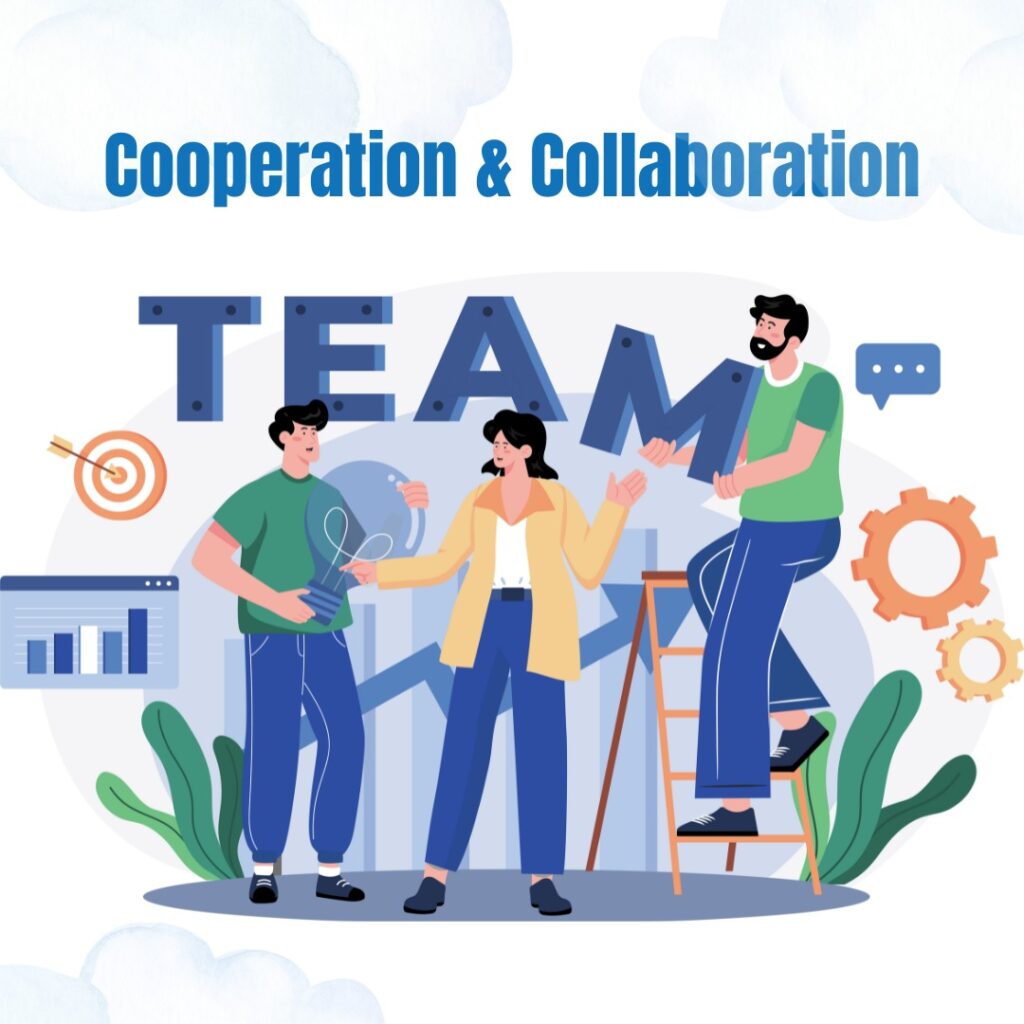
Success in the linked world of today frequently depends on one’s capacity for productive teamwork. For students to succeed academically as well as in future professional and personal situations, cooperation and teamwork are critical abilities. These abilities enable students to accept different viewpoints, exchange ideas, and accomplish shared objectives. Collaborative learning develops mutual respect, flexibility, and communication skills in students, which lays the way for a happy and successful life..
The ability to work together and cooperate is essential for group projects, class debates, and extracurricular activities. Students who are proficient in these areas have the ability to actively listen, settle disputes amicably, and make significant contributions to group projects. Beyond the classroom, these skills equip students for professional settings where collaboration is essential to success. Companies frequently want candidates who can manage different points of view, work well with others, and cultivate cordial connections with colleagues. Therefore, developing cooperation and teamwork in students is important for both academic success and professional readiness.
Additionally, these abilities support kids’ development of emotional intelligence. Empathy, patience, and understanding are necessary for teamwork and are also necessary for building strong bonds with others. Students who collaborate with their classmates have the ability to resolve conflicts peacefully, adjust to various working styles, and stay focused on common goals. Group projects, for example, teach students how to split work according to individual strengths, which improves their problem-solving skills and builds a sense of accountability. They learn from this real-world experience how important cooperation and unity are to overcoming difficulties and succeeding.
These abilities are promoted in large part by parents and teachers. There are lots of chances for students to practice teamwork by getting involved in volunteer work, debating clubs, or team sports. Students learn the value of teamwork through open communication, frequent feedback, and encouraging words from adults. Teachers, coaches, and mentors are examples of role models who can motivate students by exhibiting successful teamwork in authentic situations. Students become more confident in their capacity to collaborate with others and produce outstanding outcomes when they observe the advantages of cooperation.
Cooperation and teamwork have advantages beyond academic and professional success. They equip students to live in a multicultural, international society where forming relationships is crucial. By developing a sense of community, these abilities enable students to make meaningful connections and make constructive contributions to society. Students with cooperation and collaboration abilities are able to lead with empathy and effectively, whether they are settling problems with friends, organizing activities, or addressing complicated social concerns.
Collaboration has emerged as a key factor in the quickly evolving fields of innovation and technology. Strong teamwork abilities enable students to share knowledge, contribute to cross projects, and come up with creative solutions. Working together opens the door to big successes, whether you’re creating apps or planning community projects.
Investing in the development of cooperation and collaboration skills for students is an investment in their future. It equips them with the tools they need to excel in every sphere of life, empowering them to embrace challenges with confidence and contribute positively to society. By fostering these essential skills, we can create a generation of students who not only succeed individually but also uplift others in their journey.
